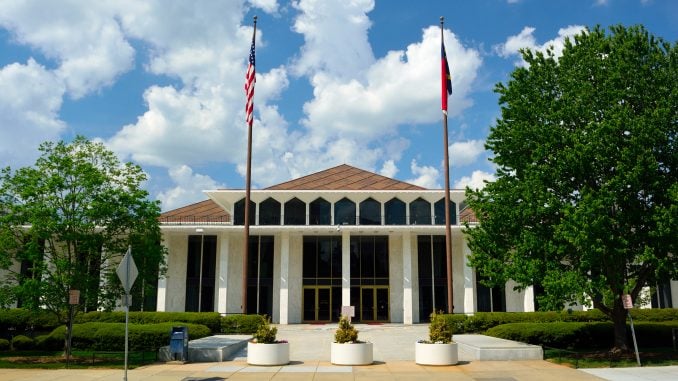
RALEIGH — Several bills with statewide implications for community college enrollment and funding of public schools are making their way through the General Assembly.
House Bill 1071 will impact public school funding by moving close to $123 million in funds to cover an increase in student enrollment, or Average Daily Membership, for the 2020-2021 fiscal year. The funds include transfer of $75 million in nonrecurring funds from the Civil Penalty and Forfeiture Fund to the Department of Public Instruction and for DPI to transfer $3,923,230 from the cash balance in School Bus Replacement Fund.
Another $22 million will be moved by the State Controller from the Coronavirus Relief Reserve to the Coronavirus Relief Fund. The legislation also appropriates $22 million in nonrecurring funds to DPI specifically to fund increased ADM in low-wealth counties due to the impacts of COVID-19.
House Bill 1136 funds the new western campus of the North Carolina School of Science and Mathematics located in Morganton. The new campus original was slated to open in August 2021, but that opening was pushed back to 2022 after Gov. Roy Cooper’s budget veto hamstringed the needed funding. The bill language goes around the budget, with funds in the amount of $3,340,591 to be drawn from a reduction to the state employer contribution rates for death benefits.
Senate Bill 814 continues funding for the NC Promise Program, which maintains lower tuition rates at Elizabeth City State University, University of North Carolina at Pembroke and Western Carolina University.
Senate Bill 816 moves funds to the N.C. Community Colleges System Office for enrollment growth purposes by directing the state controller to transfer $41.5 million in nonrecurring funds from the Coronavirus Relief Reserve to the Coronavirus Relief Fund. This marks a significant investment in the state’s community college system, which up until 2019 had seen stagnant and declining enrollment growth.
Much of the funding in the bills comes from sources related to COVID-19, both from the state funds and from the federal CARES Act. Lawmakers have already released $1.6 billion of COVID-19 related relief.
Due to the COVID-19 shutdown, the state’s budgeting process and revenue streams have been strained, with the most recent state budget deficit predictions of a total net drop of $5 billion in the biennium. That total includes an expected $4.2 billion drop (8.2%) in General Fund revenues and an expected $774 million drop (9.7%) in the Highway Fund and Highway Trust Fund.
According to the Fiscal Research Division and the Office of State Budget and Management, the 2020-21 fiscal year forecast has been revised downward by $2.57 billion (9.9%) and projects a $1.64 billion (6.6%) under-collection for the current fiscal year. This includes an estimated shift of $1.01 billion out of fiscal year 2019-20 and into fiscal year 2020-21 because of delayed tax payments and collections.



